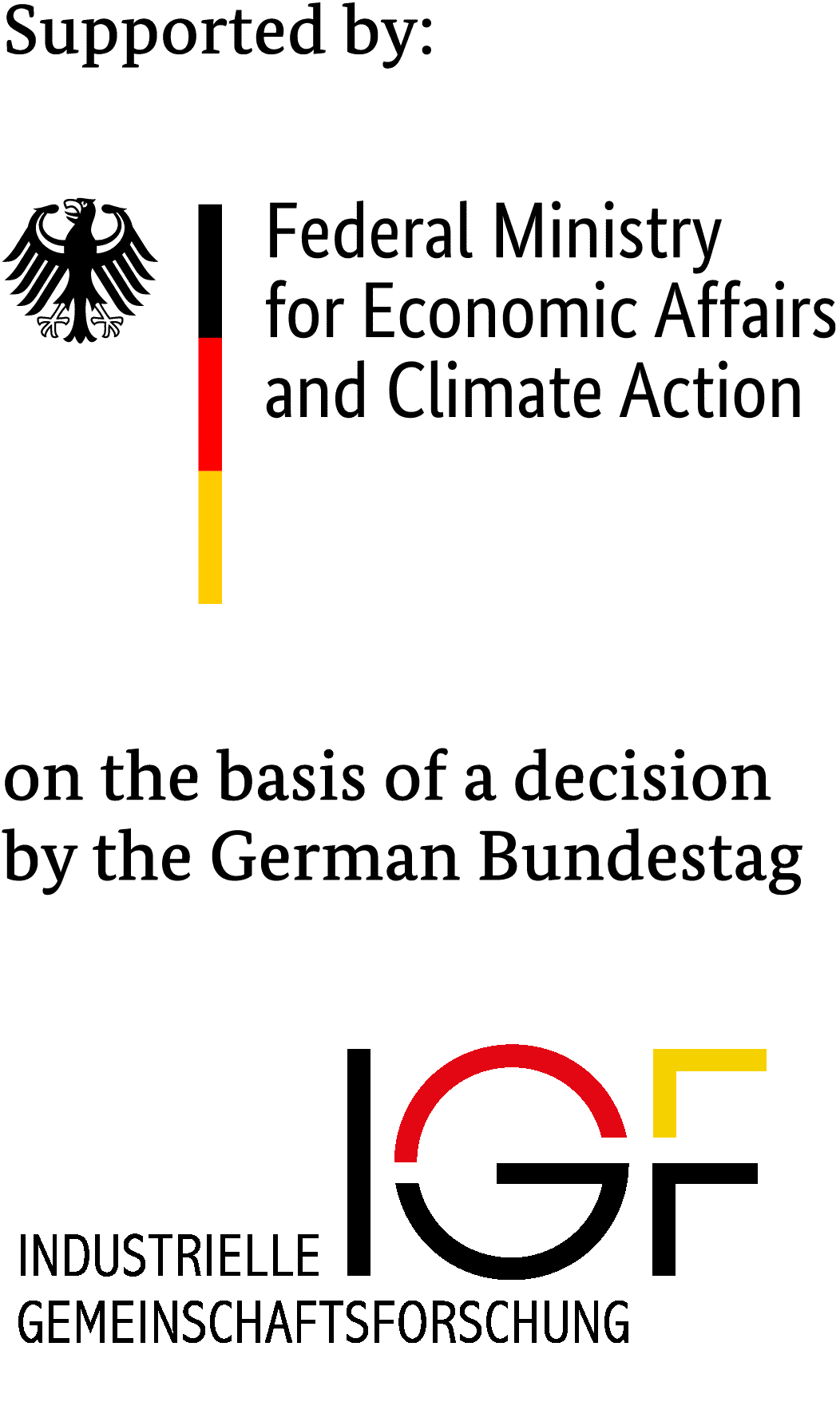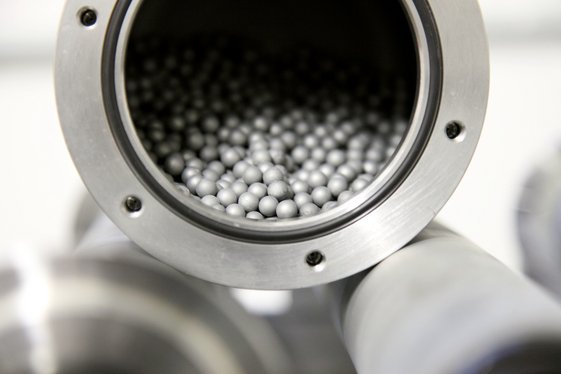Backround and aims of the project
Cement grinding is the last step in cement production, which is classified as an energy-intensive process. Cement grinding accounts for approximately 45 percent of the total electrical energy demand and has a decisive influence on product quality. The energetic optimisation of grinding in ball mills, which have been used for grinding for over 100 years, is therefore of great importance. Current investigations show that energy savings of up to 15 percent are possible through the use of ceramic grinding media, without endangering the high quality requirements for the different cement types.
At present, the use of ceramic grinding media is only applied in isolated cases in cement grinding. Due to many unidentified influencing factors, a purely mathematical design of the charge for large-scale plants is currently not possible, and large-scale technical tests cause high costs.
In order to create a design basis for the use of ceramic grinding media in the field of cement grinding, important parameters for the design and behaviour of ceramic grinding media in the grinding of clinker and other main and secondary cement constituents are to be investigated in this research project. The focus here is on fine grinding (ball sizes <50 mm).
Only due to the lower manufacturing costs and higher qualities of ceramic grinding media in recent years do they represent an alternative to the common grinding media made of steel. The innovative idea of this research project is the systematic analysis of the comminution and grinding behaviour of ceramic grinding media in order to be able to make scaling rules and predictions about the energy demand and the plant behaviour when using these grinding media by means of a flow sheet simulation environment. These predictions not only enable an energetic optimisation of the plants, but also facilitate the development of new products through a better understanding of the comminution behaviour. The scientifically founded approaches to the use of ceramic grinding media can be used directly by the SMEs of the cement manufacturers and the plant construction industry.



